Reid starts by asking me – who is here to have a conversational interview with her – about myself. She asks about what I do, whether I enjoy it and how I came to do what I do. We laugh, observing the flipped dynamic of interviewer and interviewee. “I like to know who I’m talking to,” she adds with a laugh. Fair as that is, it’s worth noting everyone around us already seems to know who I’m talking to.
As we sit at a quiet café at 44 Stanley, a number of people walk past us to stop and gleefully greet Chloe (which she apologises for). She identifies them each as people she’s worked with or become acquainted with during her brief stint as a curator at The Atelier. Clearly, Chloe Reid is a woman of networks and community.
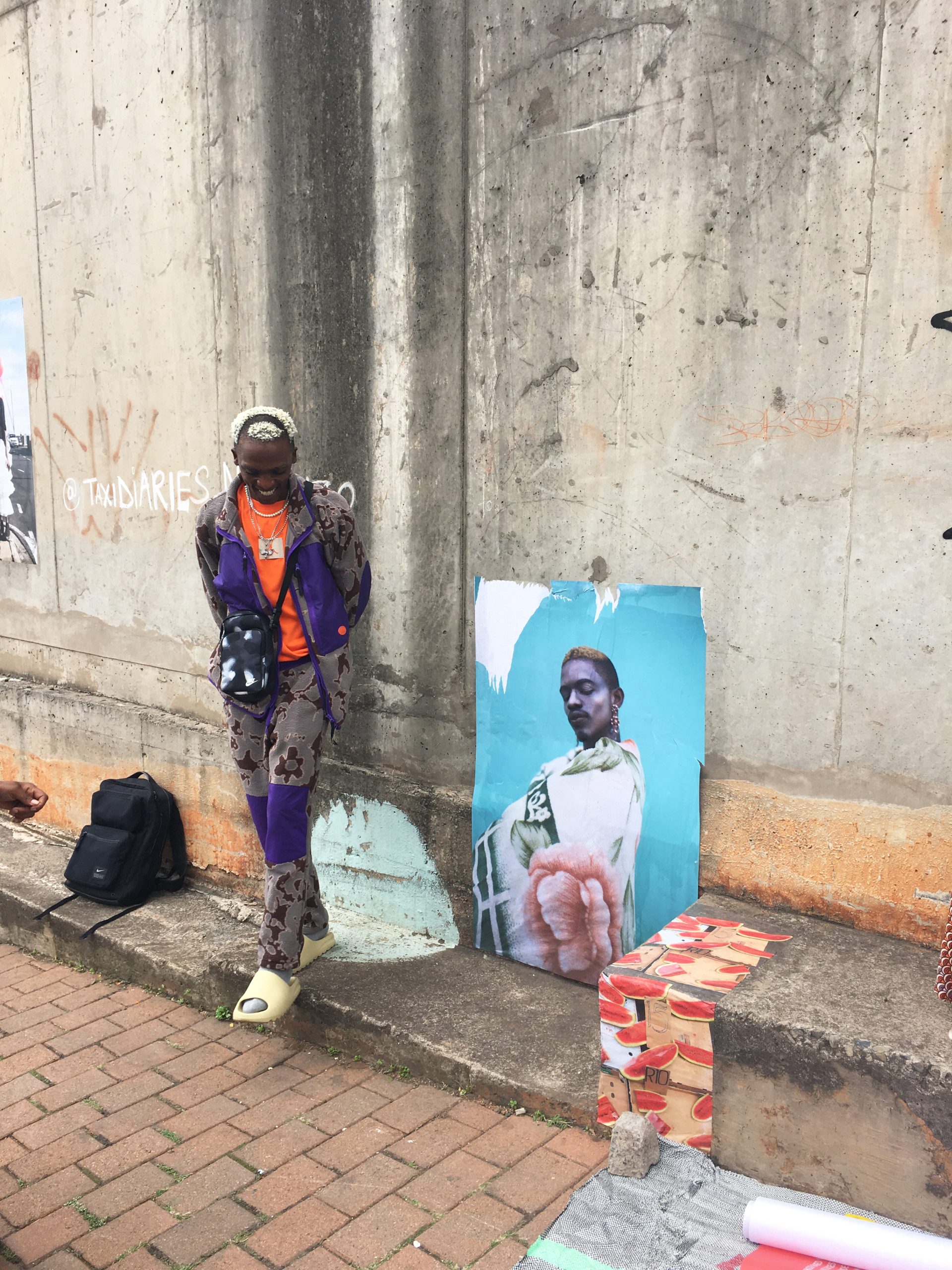
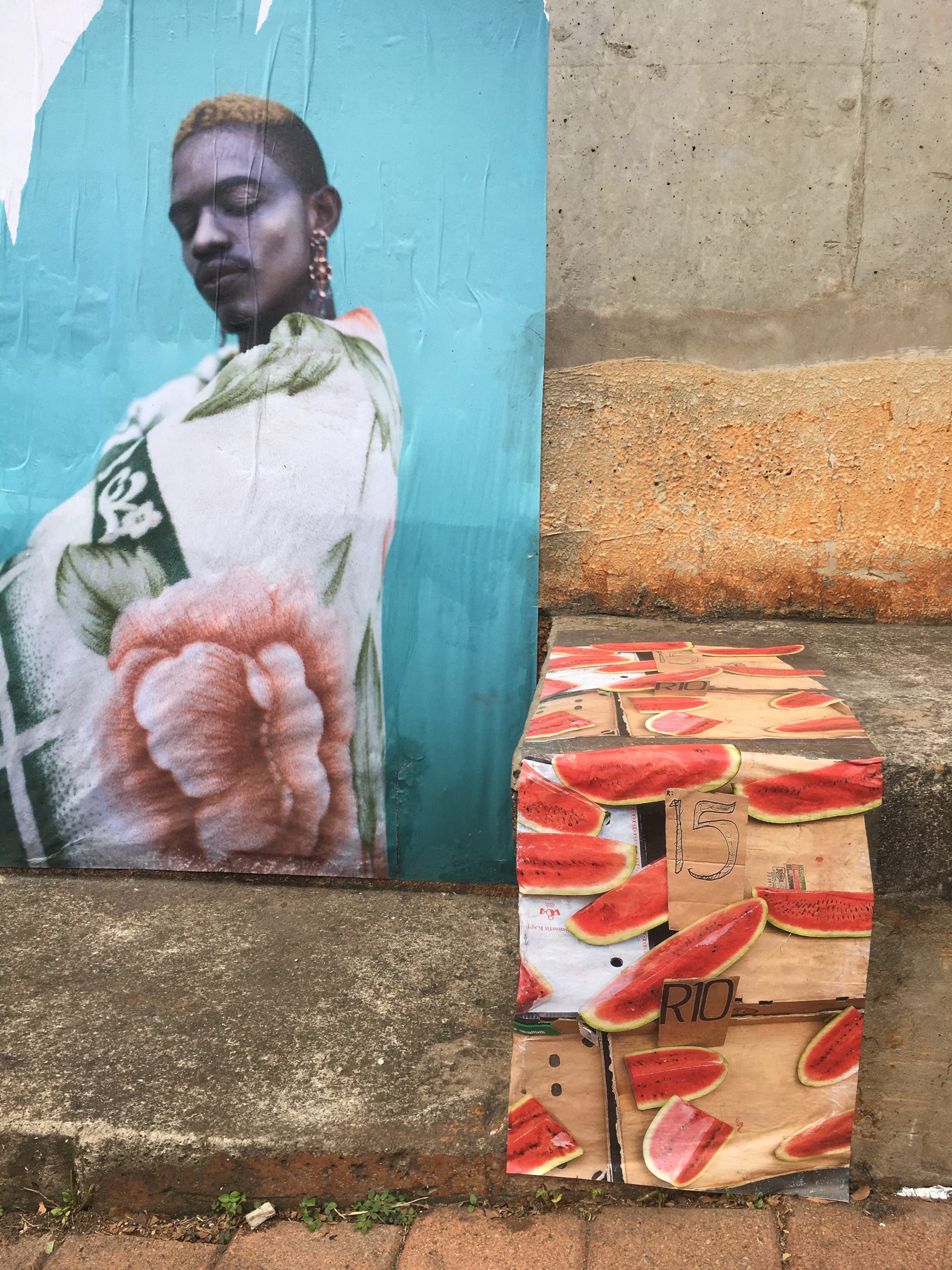
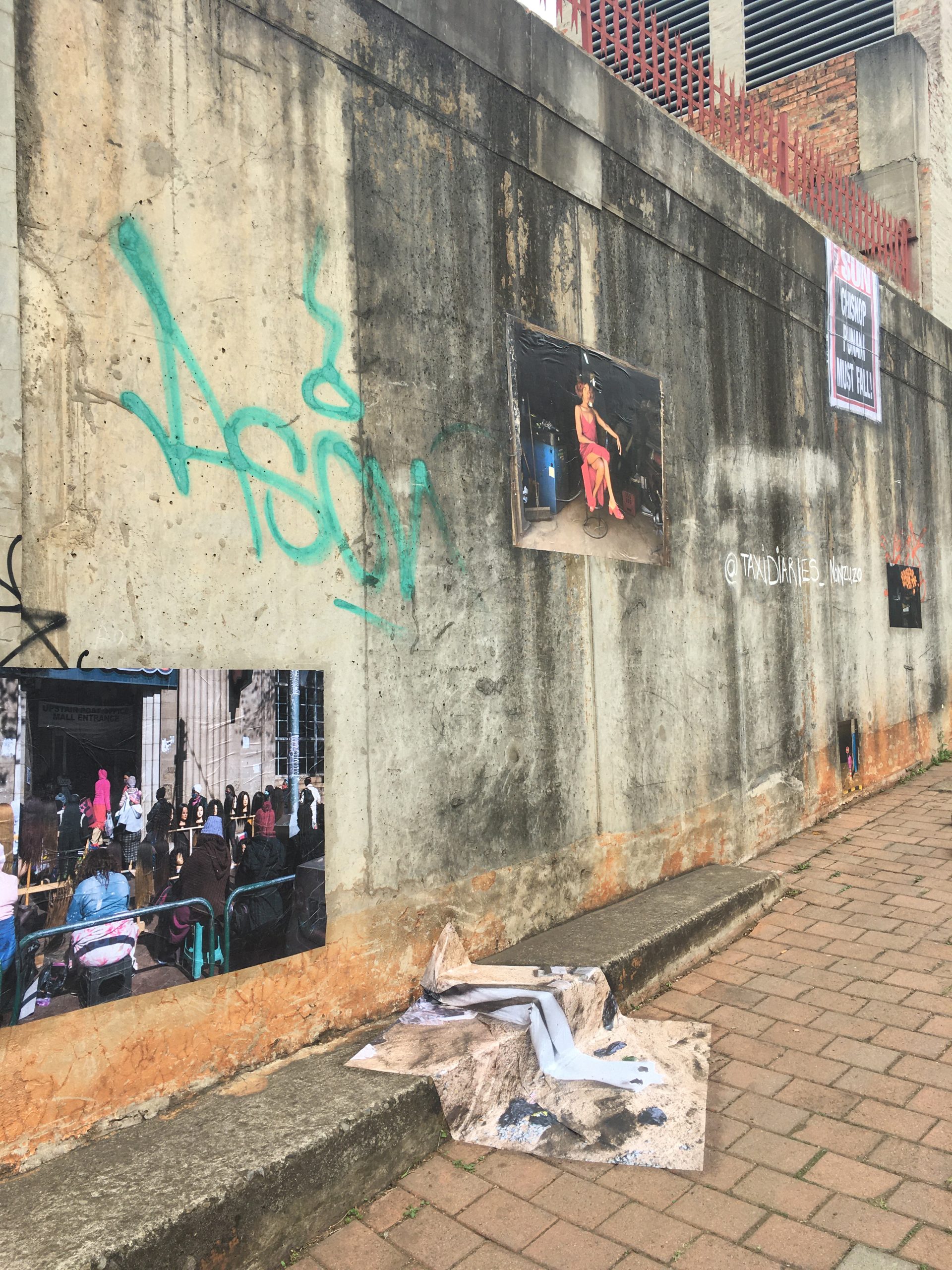
Images courtesy of wherewithall
As we go on to speak, this aspect of Reid, one of three co-founders of wherewithall, is made more and more apparent in her stories. However, from the jump, the unfortunately cliquey nature of the South African art space (heightened by the almost universal experience of art capitals being in a country’s major metropolitans), is something Reid has long been cautious of.
She recognises her own place in it, and how she has benefitted from it in her own artistic practice. After graduating from the University of Cape Town’s Michaelis School of Art, she experienced success in the Johannesburg commercial art scene. She felt the incessant pressure to produce for commercial reasons, for survival really. Almost at the height of her trajectory, coming fresh off a successful show with a gallery she was affiliated with: she left for Glasgow. She discovered just how the Scottish city had earned its reputation for being so artist-run (note: not gallery-run).
“I didn’t know anyone there. I’d never been to Scotland. There’s always this kind of prospect that you can completely reinvent yourself in this space,” she shared. In this new space, with its low-cost living, there were these artist-run organisations which had been running for decades. She contrasted this with the dark realities of artists going months, if not a full year (as she had painfully experienced) without getting their fair payout from galleries. Just hearing about the way artists are able to have creative and financial control of their careers, the question begs to be asked: why can’t we have that?
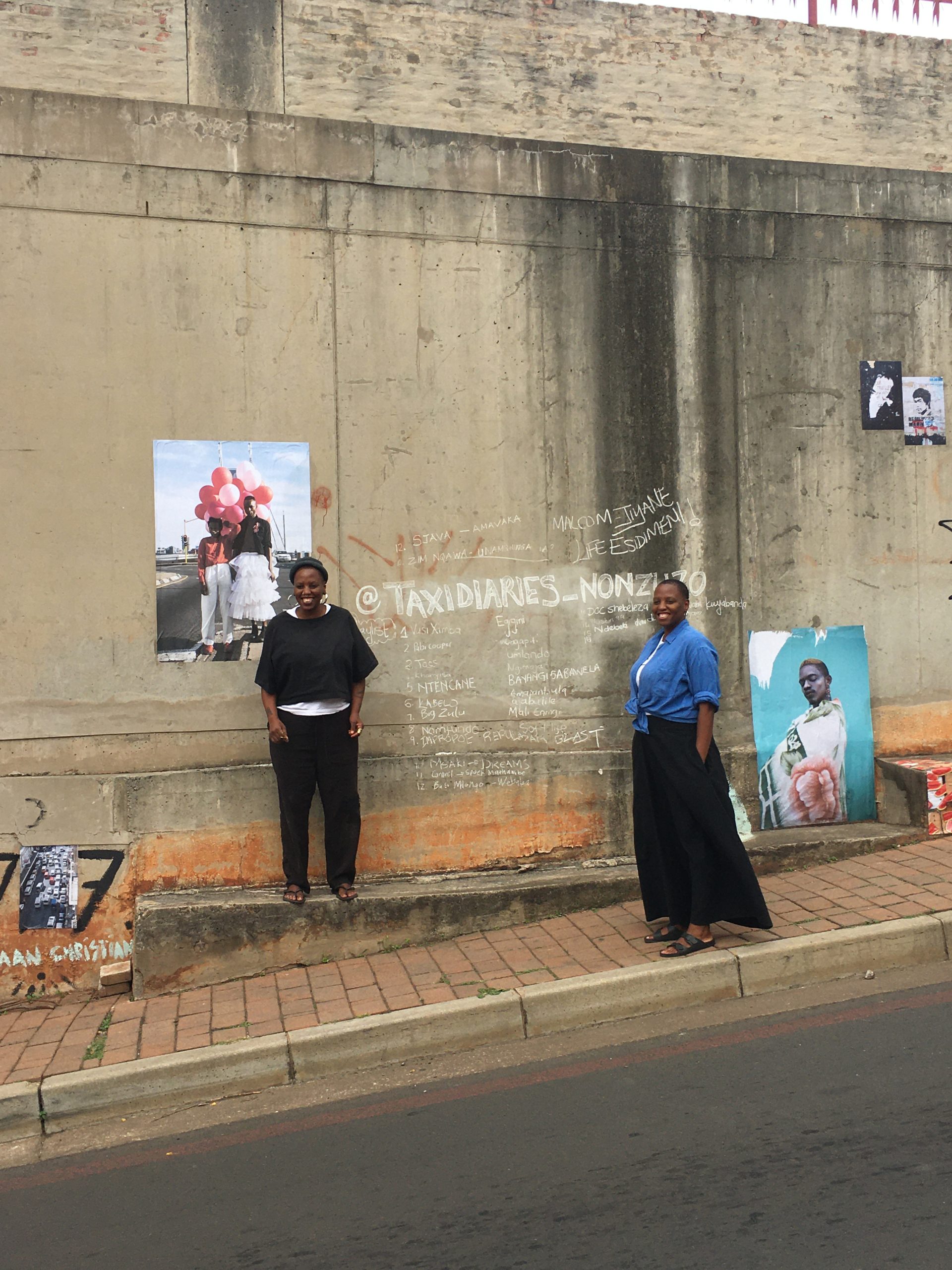
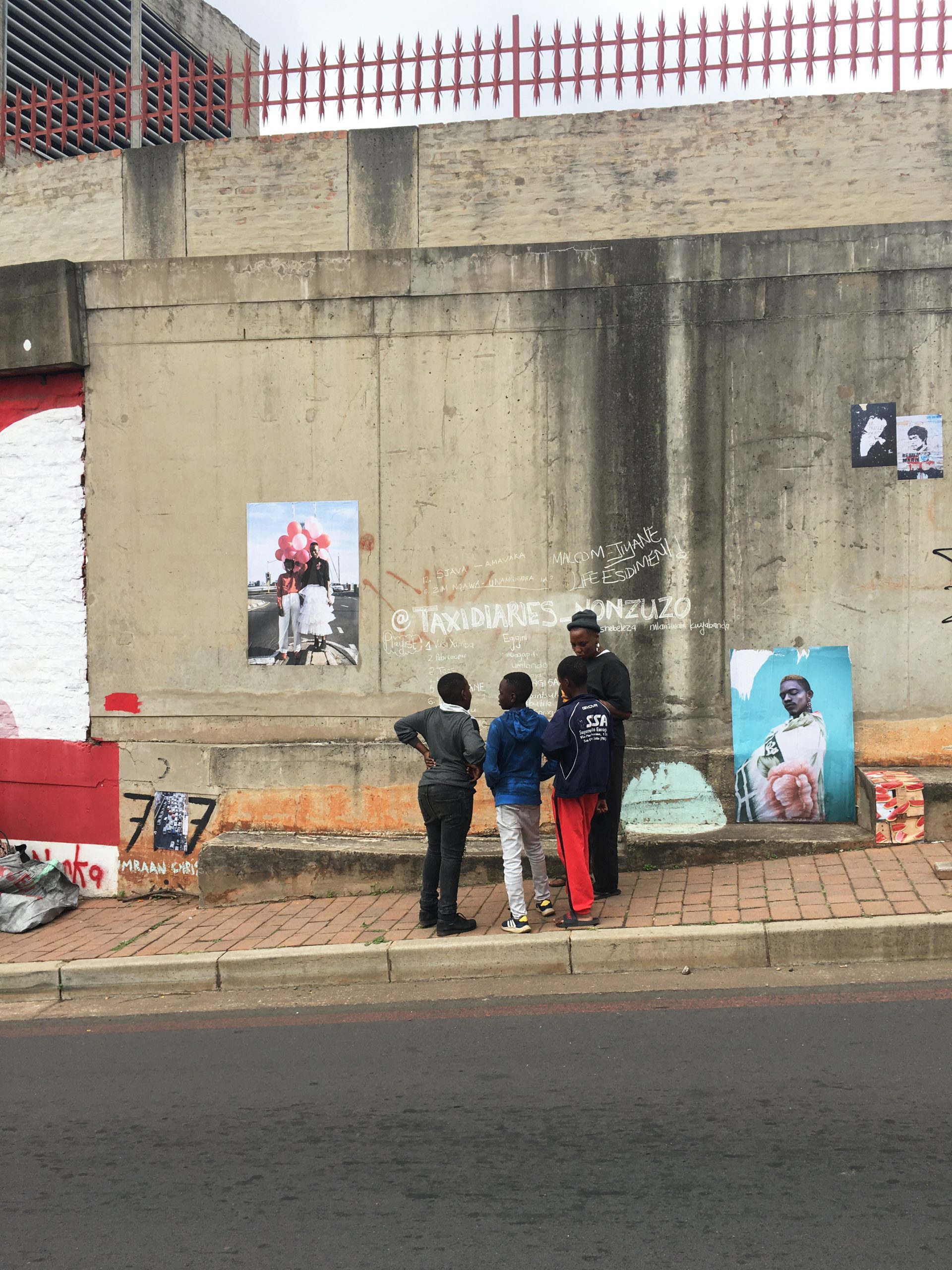
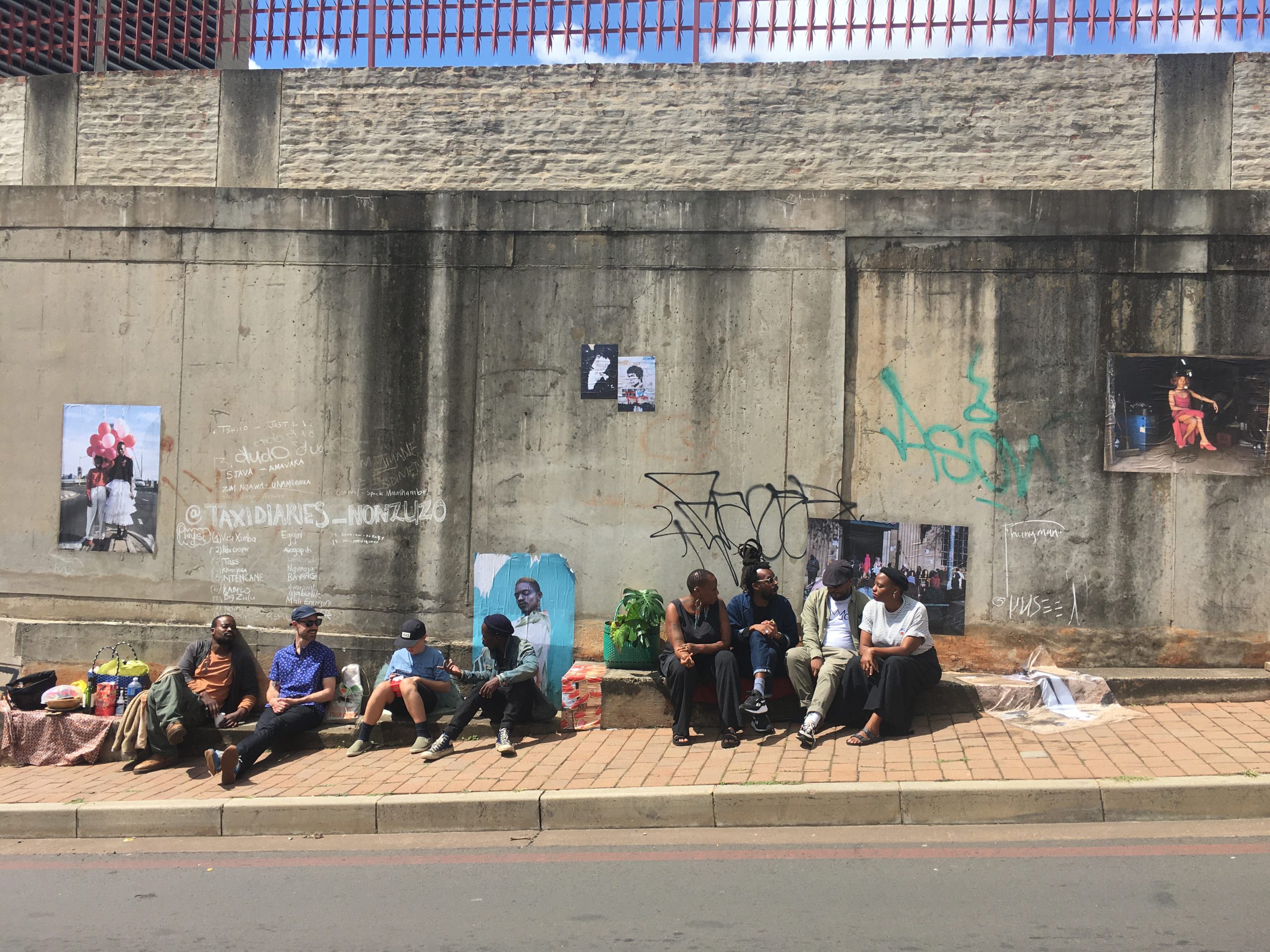
Taxidiaries, Image courtesy of wherewithall
She took this same curiosity with her in her return to Johannesburg, after a couple of years in Glasgow. “I tried to enact what I’d learned about collaboration and artists working together, or curators working together, to produce shows in spaces that weren’t galleries,” she said. “Where there were shared resources, instead of relying on funding from a gallery or institutions. How you can use collaboration and shared resources – it sounds very idealistic, it still is – to replace what support you might receive from an institution or a gallery. In doing so, kind of create more interesting exhibitions because you’re forced to operate under these conditions, and not blank like a gallery is or coded.”
Of this ethos, wherewithall, as an equipment and tool library was born. I initially thought of wherewithall as being about independent artists and independent curators. Which it is! But it became clear to me that while independent artists and curators might be who wherewithall intends to support, the dream of providing the support is made possible by many people pushing towards the same goal. Reid notes that cliqueiness can be made productive.
Even wherewithall is created from collaboration, with Reid highlighting the fact that there is no wherewithall without the equal collaboration of her co-founders Kundai Moyo and Amy Watson (who runs POOL, which supports artistic practices that ordinarily wouldn’t be supported by commercial spaces). They sought out the people who had worked against the grain before and asked them to write about the experience. The goal of this was to create a resource of knowledge around independent artistic/curatorial practice in SA.
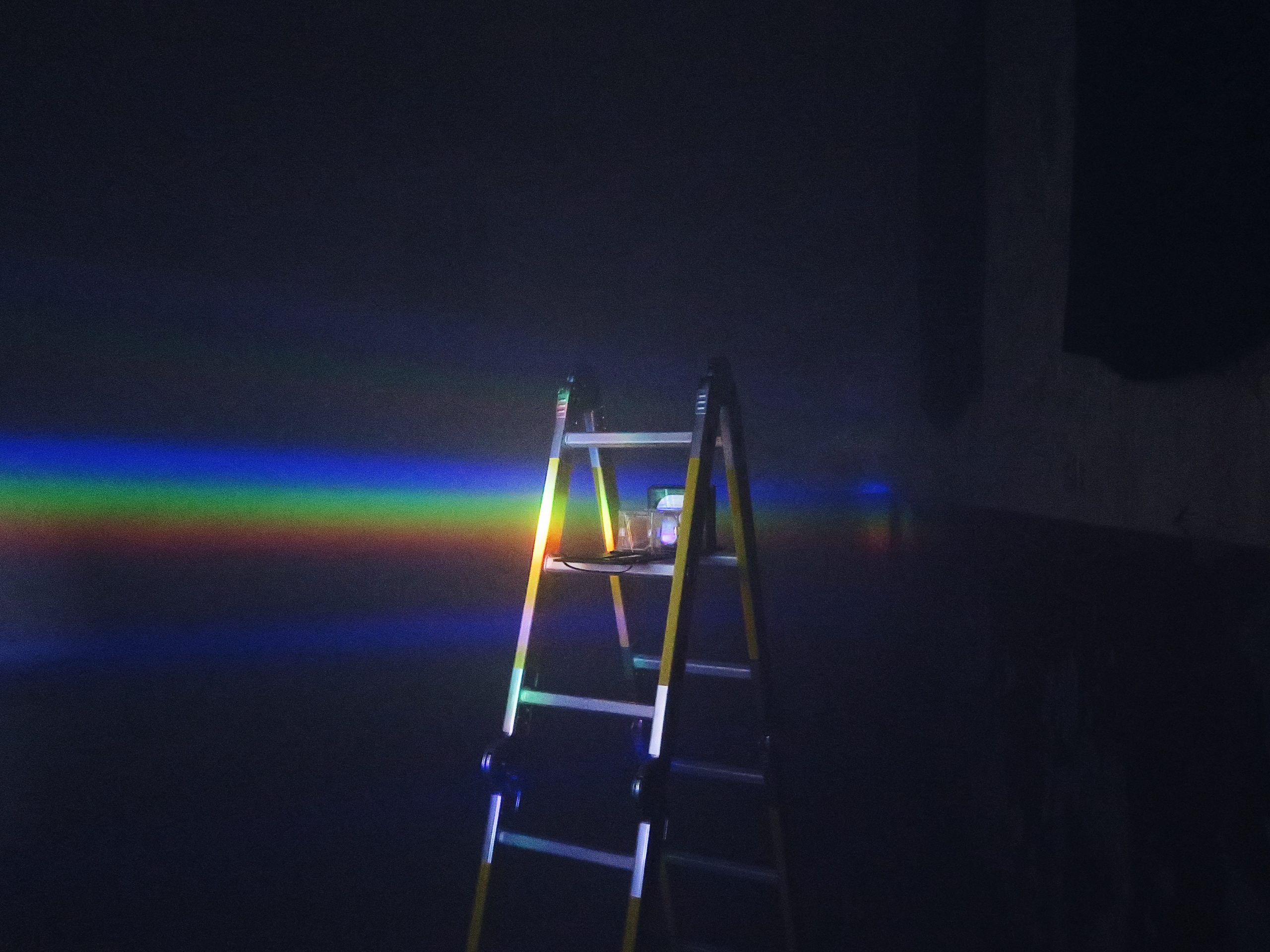
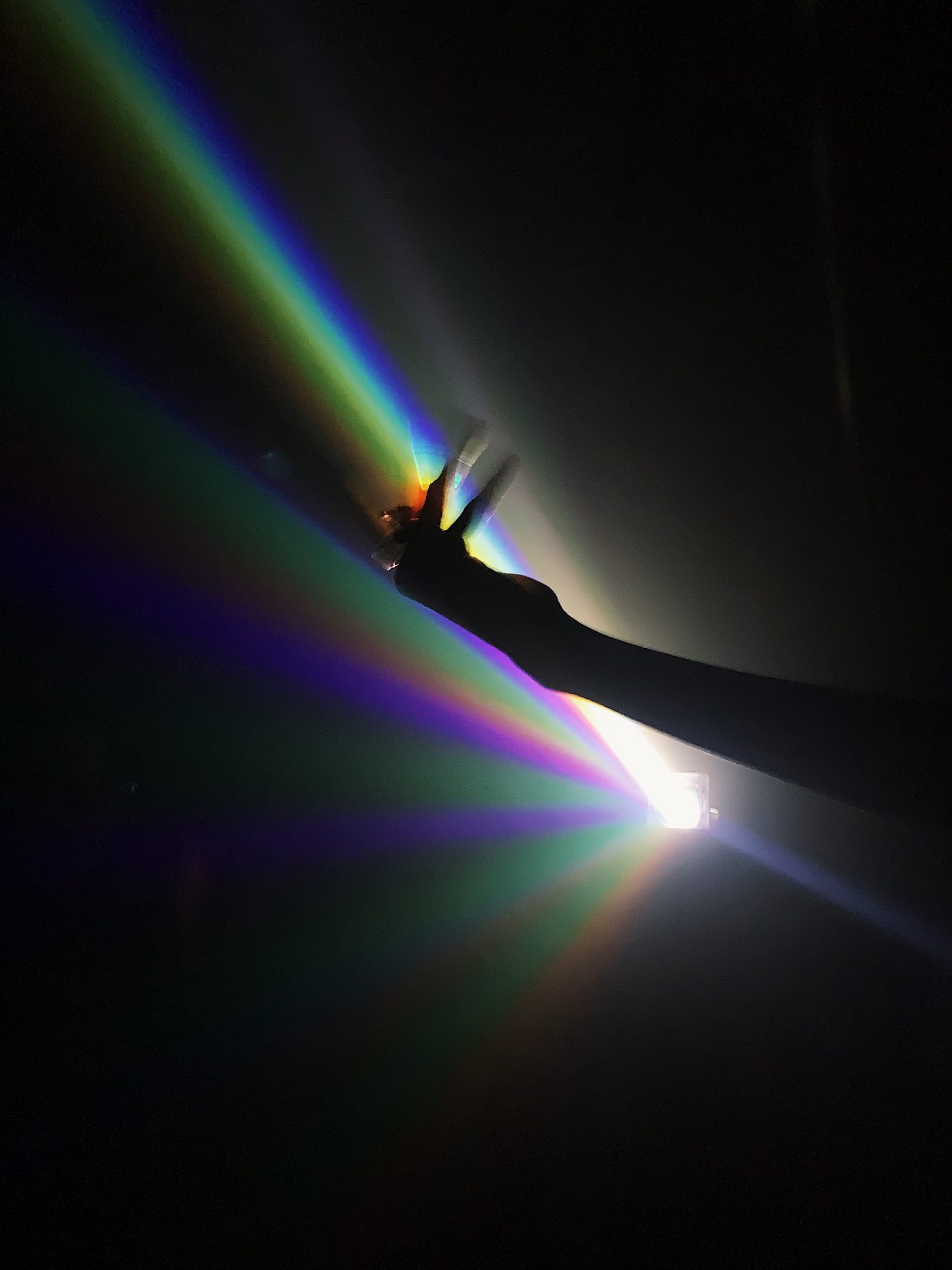
Event Horizon, Image courtesy of Motheo Mamabolo
They’re still trying to iron out kinks associated with executing the ideals. How to create a database of anyone and everyone who’s willing to borrow out equipment to those who need it; how to recruit galleries to supply their own equipment; how to support artists who can’t afford to insure the equipment? It’s all an effort – and it won’t be perfect. Ultimately, Reid emphasises that “We do need an alternative to galleries. We need other spaces and other things that are looser, where things can be a bit messier, you can fuck up and not mess up your reputation. You can engage different audiences and think carefully about space, architectures and artwork.”
And through it all, Reid understands artists’ desire to work with galleries. While the financial benefit is certainly not promised from the jump, a show at a Gallery provides prestige. In the cultural sector, prestige is a currency of its own.
But the whole gallery can also be so – frankly – boring. Just boring. Contemporary art-speak is so filled with the complex, esoteric discourses which are used to “sanitise” and legitimise the uncontainable beast (that is contemporary art), but there’s room to say things get very boring. Reid speaks about how some of the most amazing art, hung and displayed in the same galleries, again and again, lose their unique magic by the setting they find themselves in.
That’s what, in my own view, makes wherewithall so exciting. What is the product of art made possible by a community which shares an interest in play-and-risk? Perhaps there will be a failure. Perhaps it will be an astounding success. But with community around, the fall of one means there are just that many more around to help them get up again and dare to try something new again. It’s all in favour of new ways of creating, new ways of experiencing and new ways of being, that fundamentally tie our being to those supporting us and those we could support.
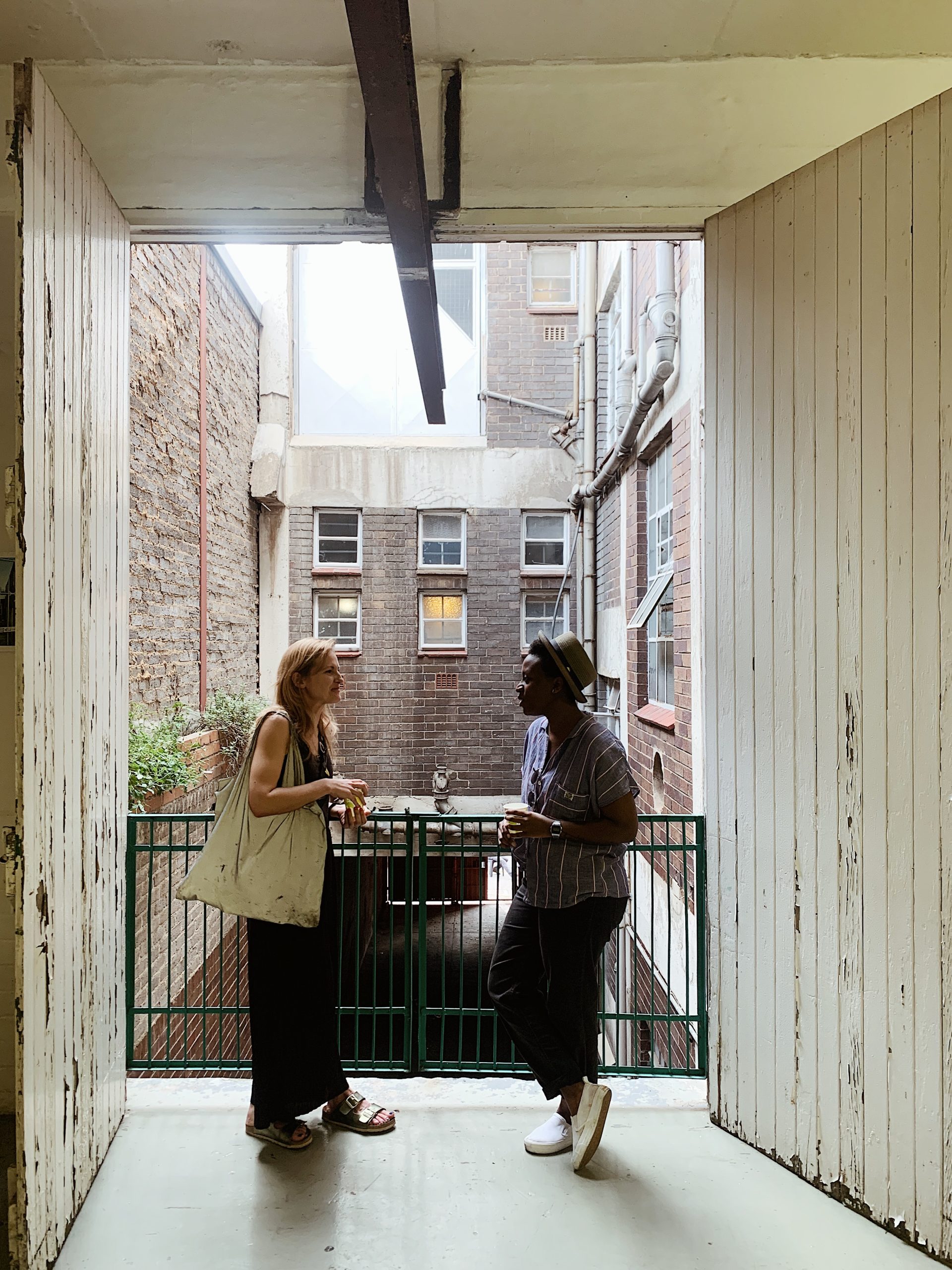
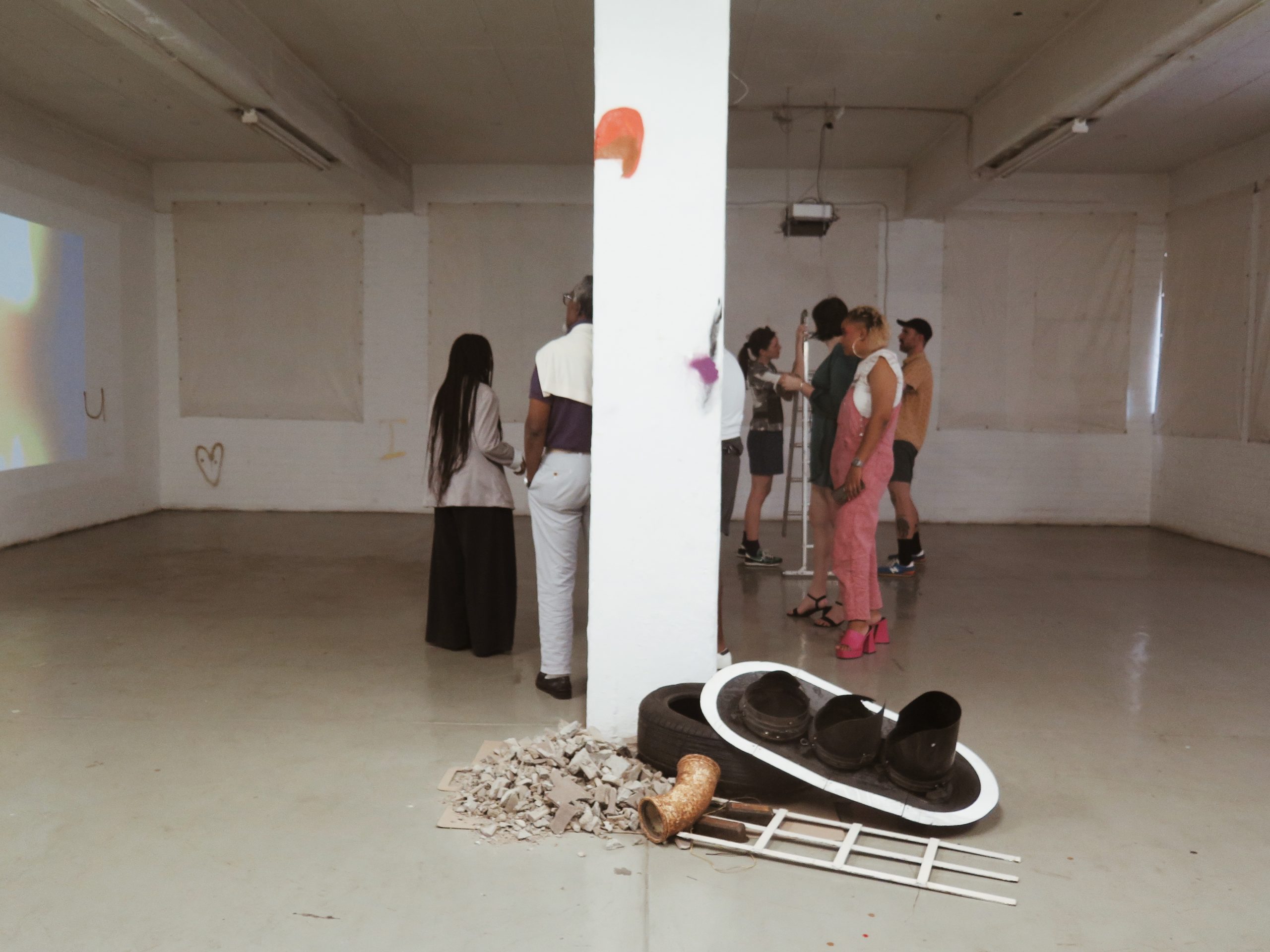
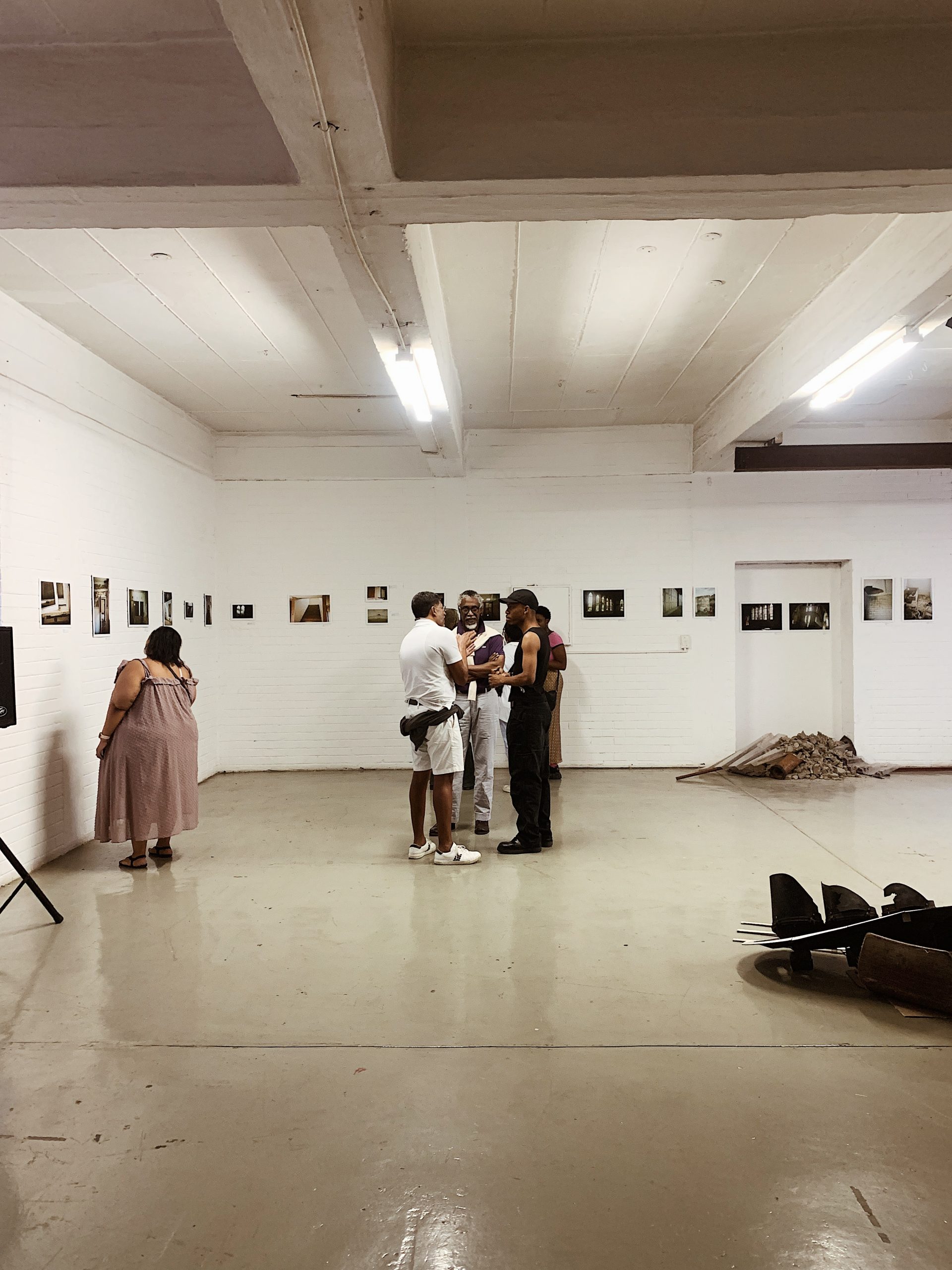
No Longer, Not Yet, Image courtesy of Motheo Mamabolo



















































